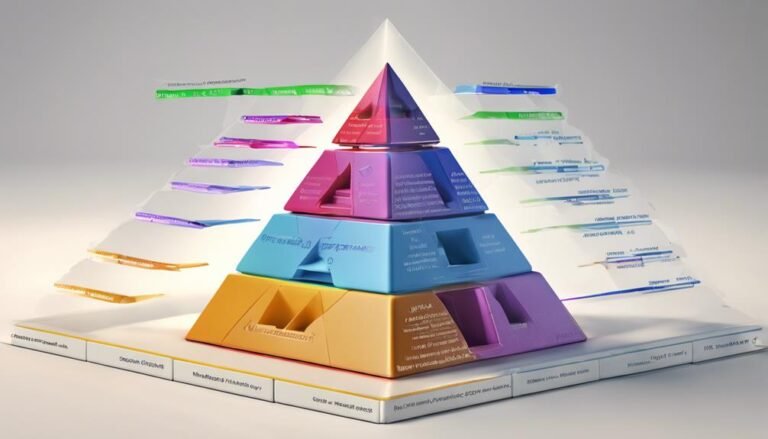Reliability and Validity of Personality Tests
When exploring personality tests, ponder this: how do you know if the results truly reflect your traits? The reliability and validity of these assessments hold the key to unraveling this mystery. As you navigate through the complexities of personality evaluations, understanding the intricate dance between reliability and validity will shed light on the accuracy and trustworthiness of the results. Stay tuned as we investigate further into this intriguing world of psychological assessments.
Key Takeaways
- Reliability ensures consistent results over time.
- Validity confirms accuracy and meaningfulness.
- Internal consistency and agreement bolster trustworthiness.
- Construct and criterion validity validate test effectiveness.
- Understanding reliability and validity enhances test interpretation.
Importance of Reliability in Personality Tests
Reliability is an essential aspect of personality tests, as it guarantees consistency and accuracy in the results obtained. Test consistency refers to the ability of a personality test to produce similar outcomes when administered multiple times under the same conditions. This ensures that the results are dependable and not influenced by external factors.
Test stability, another critical component of reliability, focuses on the consistency of results over time. It examines whether the test outcomes remain constant when individuals are retested after a certain period.
Score accuracy is important in measuring the precision of a personality test. It determines how closely the test results align with the true personality traits of the individual being assessed. Accuracy is crucial in ensuring that the test provides a valid representation of the individual's personality characteristics.
Measurement precision, on the other hand, evaluates the degree of consistency in the test results and how well the test can distinguish between different traits. A reliable personality test must demonstrate high accuracy and measurement precision to be considered valid and trustworthy.
Types of Reliability Measures
Understanding the reliability of personality tests involves examining various types of measures to validate the consistency and accuracy of the results obtained. Two key types of reliability measures commonly used in evaluating personality tests are vital in determining the consistency and accuracy of the results obtained.
Two key types of reliability measures commonly used in evaluating personality tests are internal consistency and inter-rater agreement.
Internal consistency refers to the extent to which the items within a test are consistent with each other and measure the same underlying construct. This measure is often evaluated using statistical techniques such as Cronbach's alpha, which indicates how closely related a set of items are as a group. A high level of internal consistency suggests that the test items are measuring the same trait consistently.
Inter-rater agreement, on the other hand, gauges the extent to which different raters or observers agree on the ratings or scores given to individuals. This measure is essential in personality assessments where multiple raters are involved in scoring or interpreting the results. High inter-rater agreement indicates that the test results are reliable across different evaluators, enhancing the overall trustworthiness of the assessment process.
Significance of Validity in Assessments
The significance of validity in assessments lies in ensuring that the test measures what it intends to measure accurately and effectively. Validity measures the extent to which a test truly assesses the psychological construct it claims to measure.
When a test has high validity, it provides reliable and meaningful results, allowing for accurate test interpretation. Without validity, the results obtained from a personality test may not reflect the intended traits or attributes, leading to incorrect conclusions.
Essential assessments are important in various fields, including psychology, education, and employment, as they form the basis for decision-making processes. Employers rely on valid personality tests to assess job candidates accurately, ensuring that their hiring decisions align with the required skills and traits for the position.
In educational settings, valid assessments help educators understand students' strengths and weaknesses, enabling tailored learning experiences. Overall, the significance of validity in assessments can't be overstated, as it underpins the credibility and effectiveness of any testing process.
Methods to Establish Test Validity
Establishing test validity involves employing specific methods to guarantee that the assessment accurately measures the intended psychological constructs.
Four key methods used to establish test validity are:
Construct validity assesses whether the test truly measures the theoretical psychological construct it claims to, ensuring the validation of the underlying theory.
Criterion validity evaluates how well the test correlates with external criteria, determining its ability to predict relevant outcomes.
Content validity focuses on the extent to which the test covers all aspects of the construct being measured, ensuring thorough assessment.
Face validity examines whether the test appears to measure what it intends to measure at face value, providing initial credibility to test users.
Implications for Test Users
Consider the implications of test validity and reliability for users to make informed decisions about the assessment's usefulness. Test interpretation plays a significant role in ensuring that the results accurately reflect the individual's personality traits.
When a test demonstrates high validity and reliability, users can have greater confidence in the results' accuracy and relevance to their characteristics. This confidence is essential for individuals and organizations relying on these assessments to make important decisions, such as hiring processes or personal development plans. Without valid and reliable personality tests, users may misinterpret the results, leading to misguided actions or conclusions.
Users must be aware of the potential impact of inaccurate assessments on their decisions. By understanding the reliability and validity of a personality test, individuals can assess its suitability for their intended purposes. Transparent information about a test's validity and reliability empowers users to evaluate the assessment's credibility and make sound judgments based on the results.
Ultimately, the implications of test validity and reliability for users underscore the importance of critical thinking and informed decision-making when utilizing personality assessments.
Conclusion
To sum up, reliability and validity are like the sturdy foundation and sturdy walls of a house. Without them, personality tests would lack consistency and accuracy, leading to unreliable and invalid results.
By understanding and prioritizing these essential components, users can trust the assessments provided by personality tests to make informed decisions about individuals' traits and characteristics.
Remember, reliability and validity are the key pillars that guarantee the integrity and effectiveness of personality assessments.







